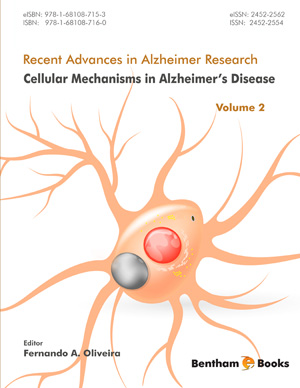Abstract
In behavioural neurosciences, animal models are aimed at providing insights into normal and pathological human behaviour and its underlying neuronal processes. Alzheimerʼs disease (AD) is the most common origin of dementia in the elderly. Several factors have been identified, such as the amyloid precursor protein (APP), hyperphosphorylation of tau protein, and the secretase enzymes. Animal models are important for elucidation of mechanistic aspects of AD. Transgenic models recapitulate expression of human β-APP and tau hyperphosphorylation to understand the pathogenesis of AD. In this chapter, some animal models are reviewed and discussed briefly in order to elucidate some criteria that an animal model should fulfil to mimic human neurodegenerative diseases.
Keywords: Alzheimerʼs disease, Amyloid beta-protein, Animal models, Octodon degu, Transgenic models.






















